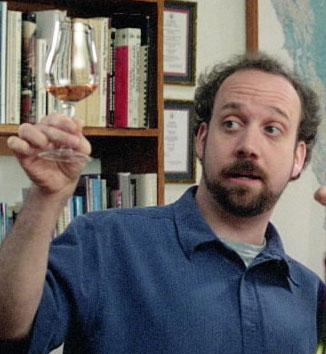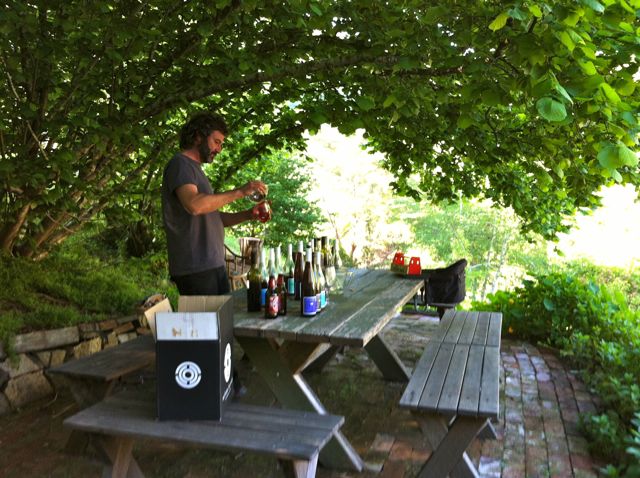“I had that Bertrand Russell in the back of my cab once. So I asked him, “Well, Mr Russell, what’s it all about?” And do you know – he couldn’t tell me!”
A cab driver funnily enough asked me what I thought about wine, and, lacking a pat ontological response, I went puffing in many directions simultaneously. Wine as a subject is out there; it is part of mass culture now, yet equally it is about formulating individual opinions and developing a personal sense of taste. Wine elicits in some a strong philosophical inclination; in others, conversely, it exposes an anti-philosophical, pontifical side; it seems that many must hold deep opinions even if they are about shallow subjects. Meanwhile, the wine press focuses increasingly on the folderol and gimmickry of a trade fascinated by the tarnished lustre of pr campaigns, endlessly regurgitated surveys, the fripperies of branding, trite packaging, the meagre frivolity of awards, and, most of all, the deadly buzz of what’s considered new and groovy. The wine trade reinvents itself constantly in order to track trends, but, in reality, it’s just changing one set of the emperor’s new clothes for another. Novelty, as Pierre Brasseur observes in Les Enfants du Paradis, is as old as the world itself.
The quality of debate is not much better at a supposedly more exalted level. I read recently a forum on biodynamics and was surprised how many contributions were couched in the contrarian language of pseudo-academia. Man, proud man, drest in a little brief authority most ignorant of what he is most assur’d etc. There was an extraordinary amount of hobbyhorse-riding, posturing, quoting out of context, intellectual absolutism and second guessing. It reminded me of those conferences where carefully researched papers are given, many opinions are vehemently ventilated and no-one ends up any the wiser. The love that many of us have for wine is gradually being eroded by a welter of spurious scientific evidence thrown into our faces. Do you believe that you taste terroir in a wine? A scientist will be on hand to assert contentiously that there is no evidence for terroir and that it is a fanciful invention of the French. (In fact that argument is a fanciful invention of scientists on an ego trip. They can’t disprove its existence but they can create false arguments to knock down). Do you love a particular wine? Then it may shake your confidence to know that many so called authoritative wine writers (supertasters) will mark it out of a hundred and perhaps completely disagree with you. Romance? Magic? Pleasure. Forget ‘em. Wine tasting has become over-evaluative; it bears less and less relation to the wine itself and to the way we respond as human beings.

The poem was probably
a poem about itself
as a pearl speaks of pearls
and a butterfly of butterflies
that poem
which eludes me in daylight
has hidden itself in itself
only sometimes
I feel its bitterness
and internal warmth
but I don’t pull it out of
the dark hollow depth
on to the flat bank
of reality
unborn
it fills the emptiness
of a disintegrating world
with unknown speech
Tadeusz Razewicz – Translated by Adam Czerniawski
For me the pleasure of wine is pleasure: occasionally we should resist analysing our experience in the same way as when we read a poem or listen to music we do not have to clinically dissect its beauty and rearrange it (what is this but translating one language into another). Too often we strain for definitive answers, we want to consciously validate our experiences rather than to feel them on the pulses. Yet pleasure may consist of denying the final moment of critical appreciation. In his Ode to Melancholy Keats depicts the tightly-bound unresolved relationship between pleasure and melancholy with a succession of extraordinary taut images and juddering juxtapositions, one of the most memorable of which is “whose strenuous tongue/ Can burst Joy’s grape against his palate fine”. Keats suggests that the instant you resolve the pleasure (be it through gratification of desire or exploding a grape or tasting a wine) you destroy the pleasure, but that that let-down is an inevitable part of pleasure. Give rein to the senses, savour the moment exquisitely, suspend judgement and allow yourself to receive impressions; like the poem that has hidden itself in itself, a wine doesn’t need to be yanked out of a dark hollow depth and exposed to flip judgement. In these moments the wine is more important than the taster. A portion of humility works wonders.

This is not to say that appreciating wine is a solitary activity. Sharing a bottle of wine in good company with good food is the definition of happy sensuousness. Communicating pleasure takes it to another level. Wine writing has become an abstraction because it is unable to celebrate this sense of pleasure; editorial constraints mean that even accomplished writers are shackled and their columns effectively reduced to a succession of sound-nibbles and supermarket recommendations.Which brings me back to my initial point: to question whether there is there any room in wine writing for philosophical interrogation, for relaying aesthetic appreciation and sensual pleasure, or must every single word fit the purpose – in that the writing is designed specifically to sell “the business of wine” and is consequently destined forever merely to skim the surface of this fascinating subject.



